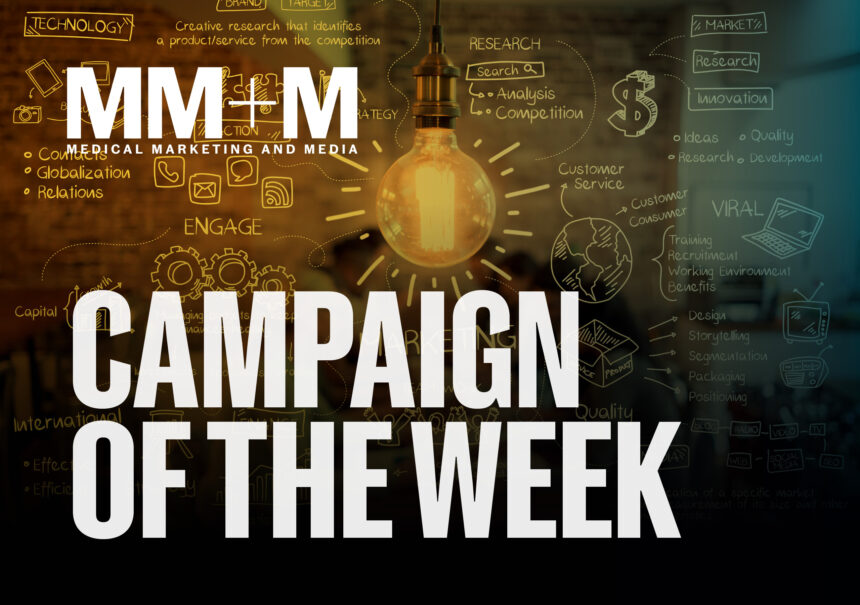Since the start of the COVID-19 pandemic, nursing homes have faced an unprecedented staffing crisis.
According to the American Health Care Association, 84% of nursing homes face moderate to severe staffing shortages. That labor scarcity is further compounded by the 229,000 caregivers who left the sector between February 2000 and July 2022, according to the Bureau of Labor Statistics.
The impact of that exodus — which accounts for 14% of the sector’s workforce — can be seen across the country as nursing homes are forced to limit admissions rather than reduce the quality of the care they provide.
So how can this trend be reversed for the sake of elderly patients and their families?
Enter a new partnership from the California Association of Health Facilities and the Axis Agency, a multicultural marketing agency. The most promising aspect of the collaboration is AI research conducted by BRANDthro.
This certified nurse assistant (CNA) awareness and recruitment campaign goes beyond traditional approaches to identify overlooked audiences who may be interested in careers as CNAs. It also identifies messaging that will resonate with different populations — the target audience for this campaign is remarkably diverse, in terms of both languages and cultures.
The new initiative is funded by a grant from the state of California. The collaboration with the Axis Agency began last summer with the campaign itself launching in January and running through 2027.
Reimagining the recruiting pitch
Claire Enright, the executive director of the Quality Care Health Foundation which is managing the program, says that in her three decades of experience, there hasn’t been a campaign of this size before.
“This is the first big statewide advertising campaign,” she says. “One of the jokes is that nursing homes usually put something [on the website] Indeed, they do outreach to a local training program or they put a flyer up at the laundromat. All of that’s old school, but that’s the way we’ve done it in the past.”
At the center of this new AI-driven effort is Your CNA Story, a website and other messaging being delivered by digital advertising, community outreach and engagement with potential employers. The target is a diverse group of Californians, ages 18 to 40, who may be interested in pursuing careers as a CNA.
An ongoing challenge for the sector is that many people who are hired as CNAs soon leave, pursuing other nursing careers for different clinical experiences or higher pay.
“They were using that [CNA] certificate as a jumping off point to go into nursing, often LVN and RN programs,” Enright explains. “One of the ideas of the program is to build a bit of a sustainability piece, so that employers will grow a pipeline for ongoing training and retention of CNAs. That’s a big piece of this project.”
New micro-certification programs, paired with incremental wage increases and changes in titles, are key to the retention side of the effort.
AI for CNAs
Incorporating AI into the initiative has provided it with an agility and reliability that isn’t possible with traditional consumer research, according to Judy Hernandez, SVP at the Axis Agency.
“It makes us feel so much more confident in the decisions that we’re making based on this data,” she says. “If we would have done this study before, in order for it to be statistically reliable, we would have had to secure at least 900 interviews or 900 participants. With AI, there’s a much lower number because of its predictive tools.”
Among the insights that AI provided was that many men are, contrary to common preconceptions, intrigued by CNA careers. (Currently, almost 90% of nursing assistants are female.)
“Originally we were thinking that females are the core audience,” she says. “However, with the learnings from our research, we learned that males are just as interested in careers as a CNA based on the type of questions that we included. We pivoted a bit in terms of who our core targets should be.”
Hernandez also mentions the Hispanic audience, a key target for CNA recruitment, as one where AI insights helped to create more culturally-nuanced messaging. In May, the program will launch Spanish-language messaging.
While Your CNA Story is paired with efforts like a state-wide job board to facilitate recruitment, for both Hernandez and Enright the heart of the program is communicating the rewards — as well as the very real challenges — of work as a CNA.
“We want to raise awareness of what CNAs bring to the care team and how valued they are as caregivers and also bring professionalism, dignity and respect to that position,” Enright concludes.







